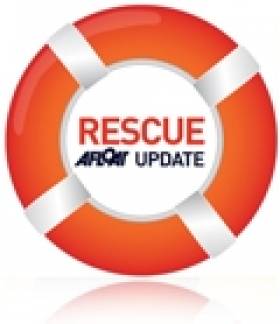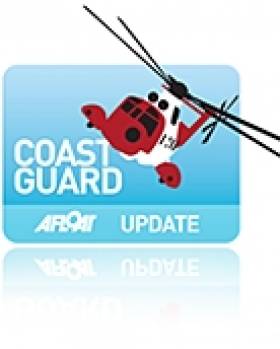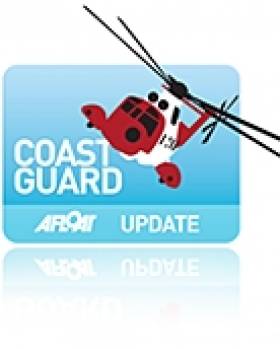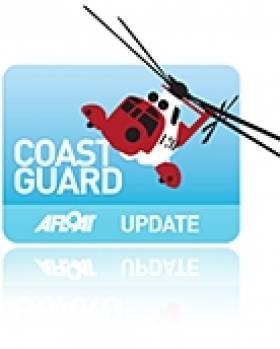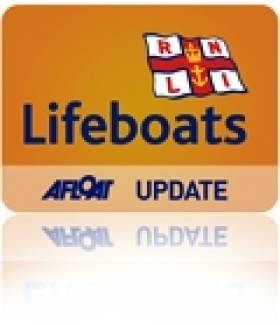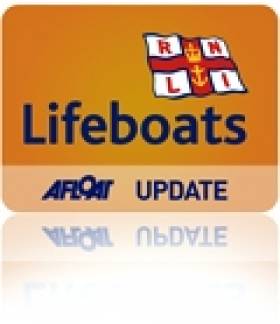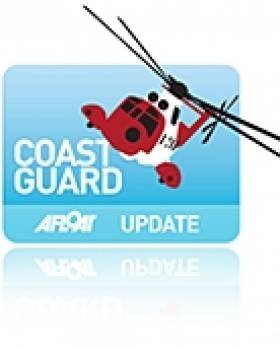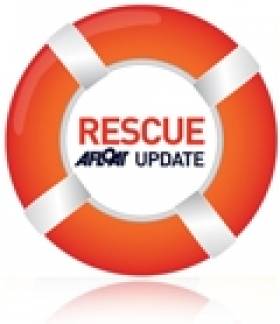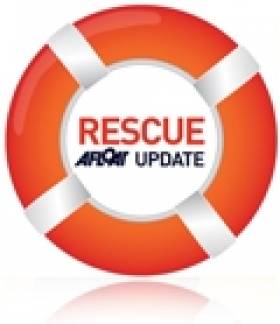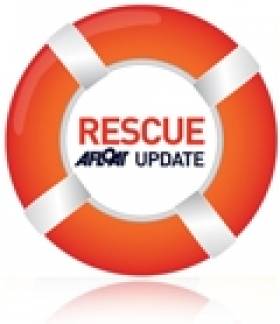Displaying items by tag: Search and Rescue
Divers Recovered from Lusitania Site After Boat Troubles
The Irish Times reports that the Courtmacsherry RNLI lifeboat went to the aid of divers at the wreck of the Lusitania yesterday.
The divers had been operating at the wreck site when their boat developed mechanical issues.
The lifeboat responded immediately in windy conditions and removed the crew to safety, towing the boat to Courtmacsherry.
As previously reported on Afloat.ie, divers led by the wreck's American owner hope to uncover the last big secrets of the stricken cruise liner, which was torpedoed by a German U-boat during the First World War.
Concerns Over Belfast Coastguard Jobs
Concerns persist over the future for Northern Ireland’s coastguard service staff - despite the British government backing down from plans to close the Bangor search and rescue centre.
As previously reported on Afloat.ie, the Bregenz House station was given a reprieve under revised proposals to streamline the UK's coastguard network.
However the coastguard workers' union told the Belfast Telegraph that assurances must still be given to preserve "the same level of service”.
Ian Graham of the Public and Commercial Services (PCS) union said: "The numbers they’re quoting in the proposals are not providing this service with enough staff.
"Lives are still at risk with these proposals, there isn’t one UK coastguard I have spoken to that doesn’t disagree with that. We need to keep fighting to safeguard the service. This was a small victory.”
The Belfast Telegraph has more on the story HERE.
Liverpool Coastguard Closure 'Will Put Safety at Risk'
A British MP has criticised plans to close Liverpool's coastguard station as 'dangerous'.
The Liverpool command centre - which also covers the Irish Sea - is one of eight that face the axe under revised proposals to streamline Britain's coastguard network that saved Belfast's search and rescue station from the axe.
Wirral MP Angela Eagle said the move "is all about saving money, not safety" and "will put safety at risk".
She told the Wirral Globe: "There’s still 12 weeks of consultation. But there real issues which need to be addressed. For example, a coastguard operator based in Northern Ireland will know nothing about what’s going on in Liverpool Bay.
"We have a huge maritime history and it’s being eroded by these cuts.”
The Wirral Globe has more on the story HERE.
Bangor's Future 'A Victory for People Power'
The decision to keep open Northern Ireland's only dedicated search and rescue base is a victory for people power, says the Belfast Telegraph.
As previously reported on Afloat.ie, the station at Bangor was saved from closure following a review of plans to streamline the UK's coastguard network.
In an editorial on Friday, the paper said: "Northern Ireland really is a place apart geographically and no-one was convinced that the waters around our coastline from Lough Foyle to Strangford and the inland waterways of Lough Neagh and Lough Erne could be safely monitored by what amounted to remote control if Belfast Coastguard was closed."
The preservation of the service at Bangor is also "a victory for common sense".
The paper added: "From now on every person plucked from the sea or the loughs will utter a heartfelt thanks to those who fought to keep the service locally-based and they will also praise Transport Minister Phillip Hammond for sparing it from closure."
RNLI Appeals for Donations to Ensure Its Survival
The Royal National Lifeboat Institution (RNLI) has issued an appeal for funds to ensure its survival.
The volunteer crews from the RNLI go to sea hundreds of times a year to help those in danger off the Irish coast, often in terrible conditions.
One recent rescue reported on Afloat.ie saw the Fenit inshore lifeboat launched to go to the aid of a fishing vessel in Tralee Bay having difficulties in thick fog.
The lifeboat successfully found the disorientated oyster fishing boat, with three crew members aboard, then discovers two further oyster fishing boats also struggling in the fog. All three were escorted safely back into the harbour.
The last two years were the busiest in the RNLI's history, the organiation says, but income is in danger of not keeping pace.
Last year volunteer-crewed lifeboats rescued 813 people from the seas around the Irish coastline, They are ready to go to sea whatever the conditions, and are on call 24 hours a day. But they can't do this without your help.
The RNLI is a charity and relies on donations to keep the lifeboat service running. If you can give anything, please forward it to the RNLI Fundraising Appeal, RNLI Ireland, Dept AA1280, PO Box 4214, Freepost, Dublin 2.
Five Rescued When Yacht Gets Tangled in Galway Bay
Galway's RNLI lifeboat was dispatched to retrieve the men after their distress call to the Irish Coast Guard.
The men were en route to Rossaveal Harbour at the time when their yacht became tied up in fishing pots.
Search and rescue operations from Northern Ireland's only dedicated coastguard centre are on the increase, the Belfast Telegraph reports.
The latest figures show that there were 50 per cent more callouts to the Bangor-based centre last year than in 2006.
Shipping Minister Mike Penning - who is behind controversial plans to streamline the UK's coastguard network, which could see Bangor either closed or reduced to daylight operation - also confirmed that more than a third of callouts were made at night.
As previously reported on Afloat.ie, the final decision on the coastguard proposals will be taken by 19 July.
Two Rescued in Galway Bay After Powerboat Breakdown
BreakingNews.ie reports that a Galway lifeboat rescued two men from a powerboat in Galway Bay yesterday afternoon.
The men were found drifting close to rocks after their 19-foot broke down south of New Harbour shortly after lunchtime.
The Irish Coast Guard Rescue Helicopter and the RNLI Lifeboat responded in minutes to the men's distress call.
Rescue Alert Over Trawler Mayday in Irish Sea
The News & Star reports that RNLI Workington responded to the fishermen's mayday call along with Maryport's coastguard and inshore rescue team.
Engline failure is being blamed for the incident, which occurred before 9.30am on Monday morning. The trawler has since been towed to Ireland for repairs.
Hull Damage To Blame for Stranded Divers
The accident that left four divers stranded off the Wexford coast last weekend was caused by damage to their boat's hull.
Divernet reports that the accident occurred when a section of tubing at the RIB's bow broke away from the hull.
The search operation, which included four RNLI lifeboats, an Irish Coast Guard helicopter and shore unit, was launched last Friday night when the group of divers failed to return to shore.
The divers were rescued at 6am on Saturday morning near the Saltee Islands, where they were found clinging to their upturned RIB.
Dramatic video of the divers' rescue was posted earlier this week on Afloat.ie.



























